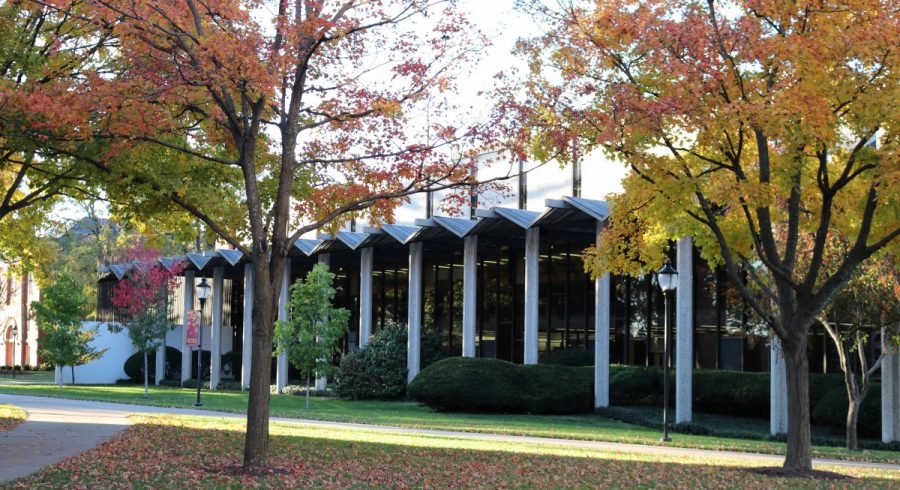Last year’s layoffs lead to more limited class options
October 18, 2018
Stretched thin and cutting classes, the English department at Simpson College is struggling to make ends meet after last year’s faculty cuts.
Early last semester, President Simmons announced there would be cuts made to many programs throughout campus. However, the student body has not been able to fully understand what this meant until now, when the effects are starting to be seen.
Many departments lost faculty or did not have positions refilled at the end of the last academic year. This forced departments to redistribute teachers and cut some classes that would normally be offered.
The biggest issue this creates is for majors and minors who have very small departments. This means teachers are forced to teach classes they have not taught before or not offer them at all.
“We are being spread thin,” said CoryAnne Harrigan, head of the English department.
The English department lost one position last year with the retirement of Nancy St. Clair, whose focus was late-British and women’s literature.
President Jay Simmons said in an email he wasn’t aware of any issues to any major or minor due to the jobs that were cut. He said classes change due to availability of teachers each year.
“I don’t believe that we canceled any courses due to insufficient number of teachers,” Simons said. “As is standard practice, some courses have been cancelled due to low enrollments.”
However, these cuts have proven to be a problem this year as the women’s literature class is important to the women and gender studies minor—an important minor in the Simpson catalog because it is the only minor or major within the humanities that deals with gender issues.
However, the English department no longer has a woman well qualified to teach it. In this political climate, Harrigan said it could be a less-effective course if a male taught it, since the students would not feel like they could talk as openly.
Olivia Collins, a sophomore considering making women and gender studies her minor, said she had not yet heard of the cuts her potential minor has been facing.
“I feel literature is the best way to convey how people are feeling in the moment,” Collins said. “If we can’t know how these feminist writers were feeling in their time, we cannot accurately know feminism.”
While this class is popular and tends to be filled each year to capacity, the department was unable to teach it this year due to lack of qualified staff. The department attempted to have an adjunct professor teach the class in West Des Moines, but the class had to be changed since more students required another literature class to complete their degrees.
“It just seems a bit ridiculous,” Collins said when asked about how she felt about the class not being offered this year.
Harrigan also said there are classes which will now only be offered occasionally, such as once every three years or every other. This is because every teacher is at the maximum number of classes they can teach. The teachers are forced to focus on the classes that are essential to earning degrees.
This spells issues for customization when it comes to degrees because students now have fewer options when it comes to electives. When asked about customization, Simmons said Simpson is focused on making sure all students will be able to finish their four-year degrees.
However, that doesn’t mean students will get to take all the classes they want. While adjuncts are attempting to fill the gaps, there are not enough teachers to offer all the classes that were once there.
Simmons said adjuncts are carefully vetted to ensure they have the knowledge and ability to teach. Even though every Simpson student will get the chance to finish their degrees, it does mean corners will be cut when it comes to class variety.
Simmons said the college is working to make sure every dollar is being used to best serve students. For example, because of the layoffs, the college could increase the disability services position to full-time and add a full-time teacher to the human services major.
“I hope that students will see changes like these as evidence that we are striving to meet that responsibility,” Simmons said.






